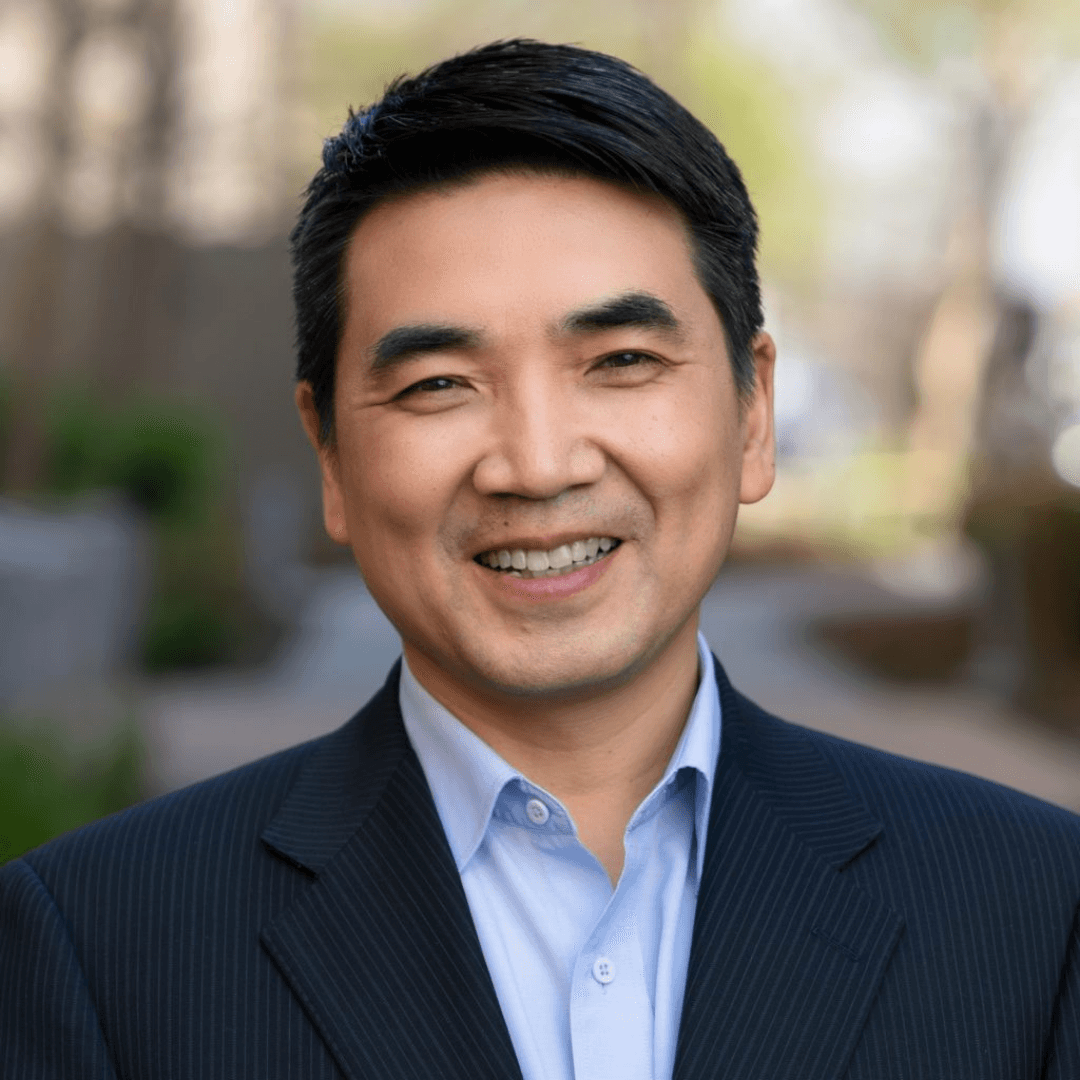Saluting Asian American, Native Hawaiian, and Pacific Islander Pioneers in STEM

TCS Celebrates AA & NH/PI Month
Here at The Coding Space, the month of May isn’t just a time for spring blooms and summer anticipation — it’s also Asian American, Native Hawaiian, & Pacific Islander Heritage Month. Celebrated each May, AA & NH/PI Heritage Month is an awesome opportunity to spotlight the accomplishments of these individuals in STEM and re-commit to disrupting the “model minority” myths that unjustly sabotage their visibility in tech. While Asian Americans are well-represented in the rank and file tech workforce, they are severely underrepresented at executive levels. In fact, Asian American tech professionals are the least likely racial group to be promoted into leadership roles, even though they are the most likely to be hired into technical roles — a phenomenon often referred to as the bamboo ceiling.
Asian Americans, Native Hawaiians, and Pacific Islanders are leaders in every area of STEM. The efforts and breakthroughs of AA & NH/PI coders have revolutionized — and continue to revolutionize — how we connect to each other via technology. Below, we’ve highlighted just four of the countless AA & NH/PI tech professionals who have ensured a more colorful, more connected, and more just world.
Jerry Yang
FOUNDER OF YAHOO
Jerry Yang was born in Taipei and immigrated to the United States in 1978. When Yang was 10, the only English word he knew was “shoe”. “We got made fun of a lot at first,” Yang told Fortune magazine about his experience growing up in the US. “I didn’t even know who the faces were on the paper money.” But Yang mastered English in just three years, graduated first in his high school class, and enrolled at Stanford, where he acquired both his bachelor’s and his master’s degree in just four years.
In 1995, when Yang was partway through his PhD, he-co founded Yahoo! with a fellow Stanford grad student. Yahoo! was an overnight sensation. Before the dawn of search engines, it functioned as a directory—and a guide—to the amorphous and often intimidating Web, making the internet feel manageable for millions of users. After serving as Yahoo’s CEO, Yang departed to seek new challenges in 2012. He is currently investing in the next generation of technologies at his firm AME Cloud Ventures, where he has supported space travel, longevity research, and more than 50 startups. To this day, Jerry Yang is credited with fomenting an Internet revolution, making the World Wide Web friendly to a broad range of everyday users — not just tech experts.

Reshma Saujani
FOUNDER OF GIRLSWHOCODE
Reshma Saujani is the founder of Girls Who Code, a visionary nonprofit on a mission to close the gender gap in technology and cultivate the next generation of tech superstars. Saujani began her career as an attorney and Democratic organizer; in 2010, she became the first Indian American woman to run for U.S. Congress. During her Congressional campaign, Reshma visited local schools and witnessed the gender gap in computing classes firsthand, which led her to start Girls Who Code. Today, Girls Who Code has taught computer science to 300,000 girls and reached 500 million people worldwide through its New York Times-bestselling book series.

Eric Yuan
CREATOR OF ZOOM
In the late 1980s, Eric Yuan was a computer-science student at Shandong University. On numerous 10-hour train rides to visit his girlfriend, Yuan imagined a way to instantly see her face; as a college freshman, he developed his first piece of bespoke video telephony software. Inspired by the American dot-com boom, Yuan dreamed of moving to Silicon Valley, but his dreams were stalled when he was rejected for a visa eight times. When he was finally granted a visa in 1997, he moved to California and was hired as one of the first 20 coders at WebEx, where he became integral to building its video-conferencing platform. Eventually, Yuan began to notice deficiencies in WebEx: connectivity was unstable, audio and video would lag, and the installation process was frustrating. This led Yuan to pitch Zoom — a more user-friendly video system. When the higher-ups turned him down, Yuan left to strike out on his own. Zoom was initially intended as a no-frills, highly functional conferencing platform for businesses, but the coronavirus pandemic changed all of that: in March 2020, Zoom was downloaded 2.13 million times in one day. Like Google and Skype, Zoom is now a verb as well as a noun — a symbol of its indispensability in contemporary life.

Dr. Josiah Hester
FIRST NATIVE HAWAIIAN TENURE-TRACK COMPUTER SCIENCE PROFESSOR
Dr. Hester’s lab at Northwestern is called the Ka Mamoa lab. The name comes from Hawaiian voyaging traditions, which date back thousands of years. Hawaiians voyaged across the Pacific in open-air canoes without navigational instruments; the mamoa is a small indentation at the rear of the canoe, where the spirit sits to provide guidance on voyages. Dr. Hester chose this name because he considers it the role of scientists to function as a guide for society, especially when tackling global-scale challenges, such as climate change, where often the direction is unknown and the destination far off. In his lab, Dr. Hester and his team are focused on building smart electronic devices to support applications across health care, environmental stewardship, and space exploration: smart face masks that monitor respiration and mask fit, soil-powered sensors for smart cities, and even a battery-free Game Boy.
For Dr. Hester, coupling computer science with sustainability is deeply motivated by his cultural heritage. As a Native Hawaiian himself, Dr. Hester understands how Native peoples’ expertise about their home landscapes far exceeds the expertise of people with a doctoral education. In his lab, Dr. Hester champions engaging technology to address issues that Indigenous people care deeply about, thereby broadening participation in STEM.

Tracy Chou
FOUNDER OF BLOCK PARTY AND DIVERSITY ADVOCATE IN TECH
Tracy Chou is an entrepreneur, software engineer, and diversity advocate. She is currently founder and CEO of Block Party, working to solve abuse and harassment online. Prior to founding Block Party, Tracy was a software engineer and tech lead at Pinterest and Quora. Aside from her many accomplishments as an engineer, Chou is perhaps better-known for her tech diversity activism. In 2016, Tracy co-founded the non-profit Project Include, which works with tech startups to ensure that they are giving everyone a fair chance to succeed in tech. In 2018, Tracy co-founded the non-profit #MovingForward, which works with venture capital firms to establish anti-harassment policies. For her advocacy work, Tracy has appeared on the covers of The Atlantic, WIRED, and MIT Technology Review; been named Forbes Tech 30 under 30, MIT Technology Review 35 Innovators under 35, and Fast Company Most Creative People in Business; and been profiled in Vogue, ELLE, and other media outlets. In 2022, she was honored as one of Time Magazine’s Women of the Year.

AA & NH/PI Heritage Month is the perfect time to celebrate the resilience, brilliance, and grit of the AA & NH/PI community in STEM. At TCS, we believe that coding has the power to be a great social equalizer and that everyone benefits when we create more opportunities for students from all walks of life to develop this skill. Through our coding curriculum, we hope to encourage and empower a diverse generation of future leaders in STEM.